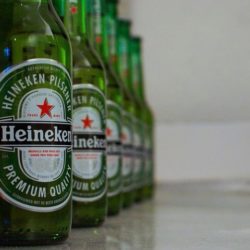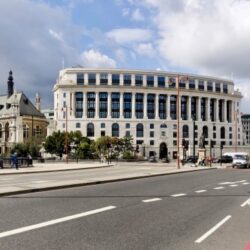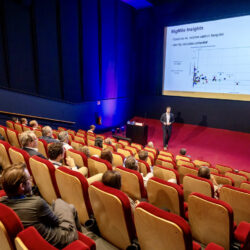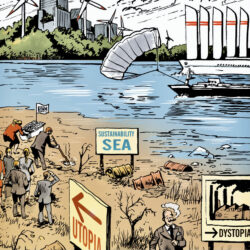New initiatives to speed up sustainability in shipping
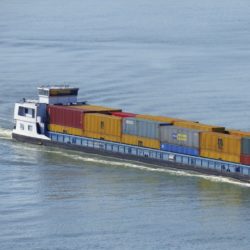
A number of initiatives within both inland shipping and maritime shipping are currently aimed at rapidly making this mode of transport more sustainable. For example, Heineken has recently launched the first inland shipping vessel to use 100% sustainable biofuel. The ship transports beer from the company’s brewery in the Dutch town of Zoeterwoude to the deep-sea terminals at the port of Rotterdam.
GoodFuels, a pioneer in the development of sustainable fuels, and its business partner Reinplus Fiwado Bunker recently fully bunkered the Combined Cargo Terminals inland barge For Ever (see photo) with 100% advanced biofuel for Heineken for the first time. This project not only illustrates how easy it is to use biofuels, but also achieves a significant reduction in CO2.
GoodFuels, Reinplus Fiwado Bunker and Combined Cargo Terminals (CCT) hope to demonstrate that emissions from inland shipping can be reduced quickly and easily without any modifications to the ship or engine. A CO2 reduction of up to 90% can be achieved compared to fossil fuel, plus biofuels also reduce local emissions.
Follow-up to pilot in 2017
The 100% biofuel-powered cargo shipment follows on from a successful pilot with Heineken in 2017, which involved a ship powered with a 30% blend of fuel. The project is part-funded by the ‘Clean inland shipping and sustainable logistics in Rotterdam’ incentive scheme and is supported by the Expertise and Innovation Centre for Inland Shipping (EICB), in cooperation with the Port of Rotterdam Authority.
The GoodFuels biofuel is made from certified sustainable waste flows. It is a fossil-free, synthetic biofuel of premium quality and is easy to use as a substitute for fossil fuel. This ‘second-generation’ biofuel does not allow bacteria to form and can be used directly in diesel engines in its pure form, without requiring any modifications to the ship or tank infrastructure.
Similar approach for ocean freight
GoodFuels also recently announced that it will start a similar project for ocean freight in collaboration with Ikea, shipping company CMA CGM and the GoodShipping Program. This is well timed because the international container shipping industry is under substantial pressure, particularly since it became known that it had remained outside the Paris Agreement for limiting CO2 emissions.
In addition, a group of six Dutch multinationals (FrieslandCampina, Heineken, Philips, DSM, Shell and Unilever) have joined forces in the Dutch Sustainable Growth Coalition. In an effort to improve the sustainability of their ocean freight activities, the group want the large container ships they contract to use more renewable fuels. As a test, a Maersk ship will sail from Rotterdam to Shanghai on a blend of biofuel and conventional fuel.



